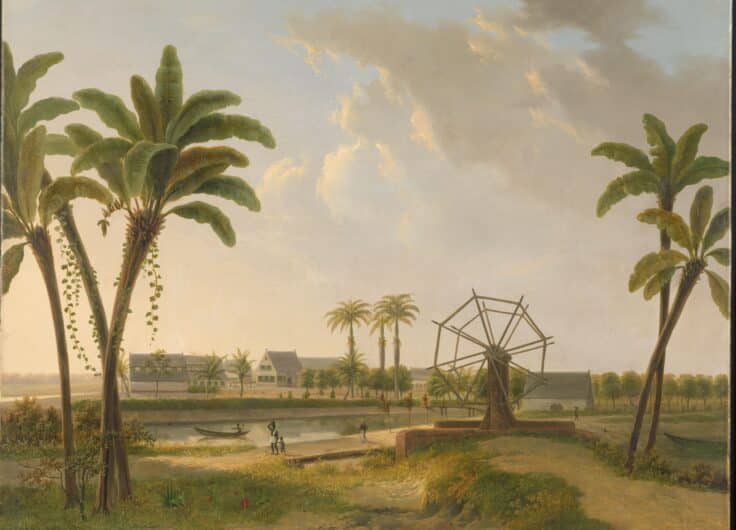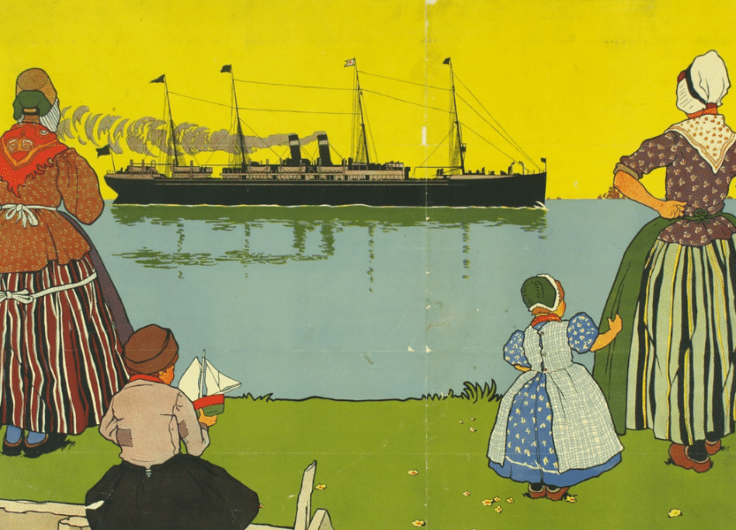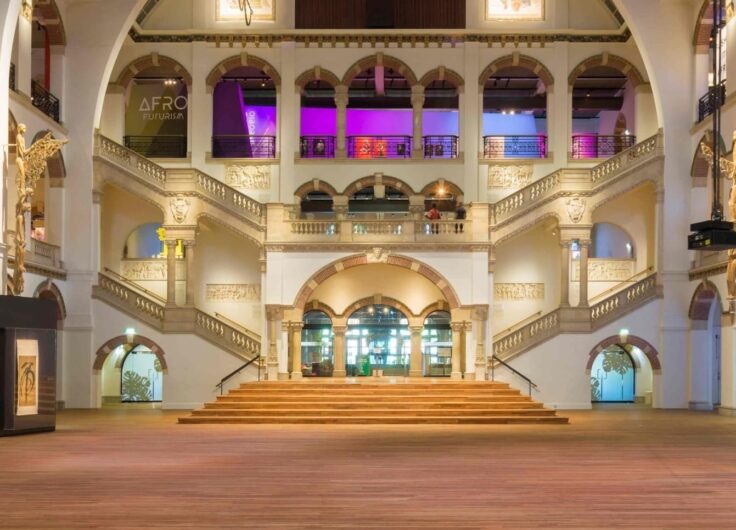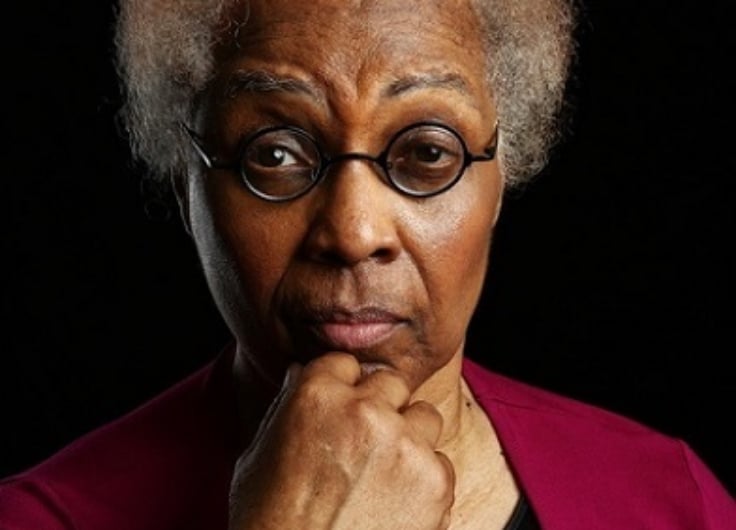Humour in Flanders and the Netherlands. ‘We Have Grown Closer but Don’t Really Know Each Other’
Is there such a thing as typical Dutch or Flemish humour? And if so, what are the differences and similarities? Does a Flemish audience react differently than a Dutch audience? And are there subjects that can be best avoided? We asked these questions to Katinka Polderman and Bert Kruismans. She is a Dutch cabaret artist; he is a Flemish stand-up comedian who is also successful in French-speaking Belgium.
“When I was in theatre school twenty years ago, people always said that Belgians were really into absurdism. That was very true at the time, but now I think that there are also some absurdists in the Netherlands. But traditionally, maybe that’s a difference. I know that there are Dutch people who don’t resonate with the audience in Belgium, but I often have no idea why”, explains Katinka Polderman.
Do you think that this absurdism is something typically Dutch or Flemish, Bert?
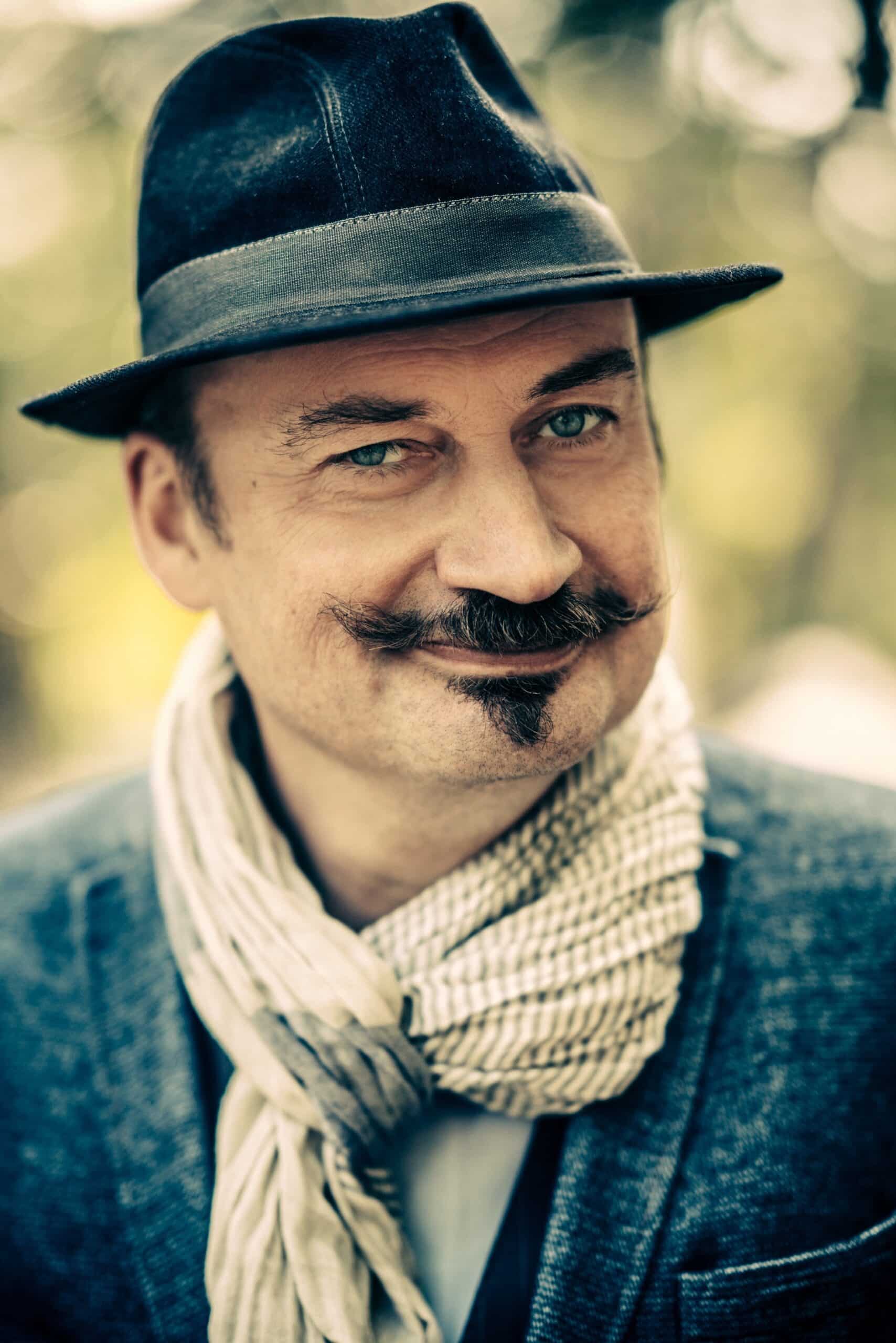 Bert Kruismans
Bert Kruismans© Toon Aerts
Kruismans: “Look, that is where it starts. We talk about Flanders and the Netherlands, but the Dutch refer to Belgium. When you hear someone say that something is typically Belgian, you know that the person who said that was not Flemish. We are very aware of the difference between the north and the south of our country.”
Polderman: “We definitely mean Flanders when we say typically Belgian. The French-speaking part doesn’t really exist for us.”
Kruismans: “For many Flemish people, it doesn’t either, so we have that in common at least (laughs). But I think it’s true what Katinka says, that a lot has changed in the last twenty years. In the past, there were several courses in Holland that one could take to become a cabaret artist; here, you only had the Kleinkunstacademie or Studio Herman Teirlinck. Especially since the rise of stand-up comedy, you see a lot of people on stage who never had any training. This more Anglo-Saxon genre, in which you don’t have to sing any songs, first came to Amsterdam, blew over to Flanders in 1997, and in 2009, also arrived in French-speaking Belgium. As a result, there is barely any difference in how we perform on stage. It’s a man or a woman on the podium, a microphone, and no further props, sometimes there is a central theme, sometimes there isn’t. Under the influence of the Anglo-Saxon way, we have grown closer to each other, certainly in terms of form. And it’s true that there are Dutch people who never really become famous in Flanders, but the reverse is also true. I am one of those people.”
Bert Kruismans: ‘There are Dutch comedians who never really become famous in Flanders, but the reverse is also true. I am one of those people’
Why did you fail to become successful in the Netherlands?
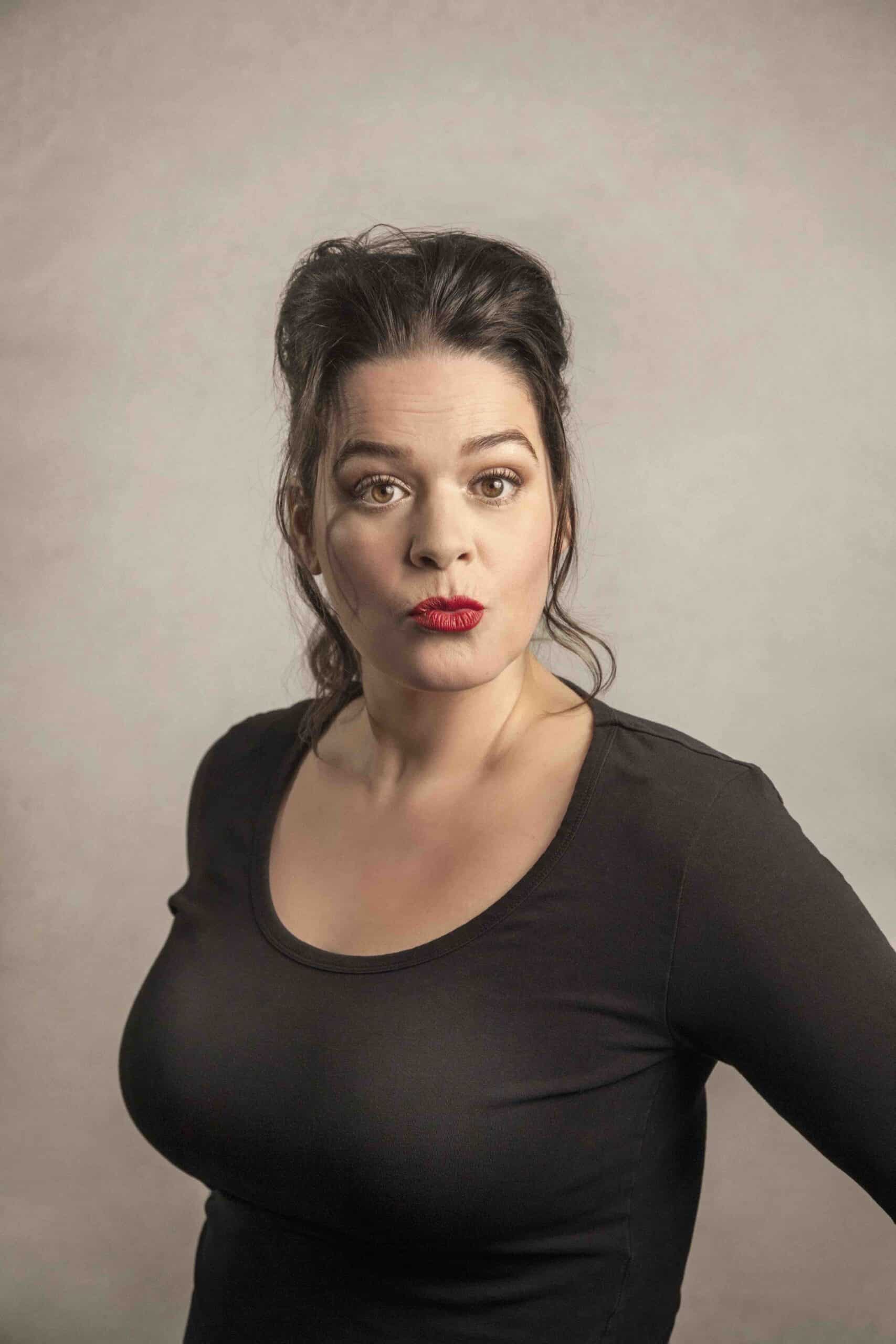 Katinka Polderman
Katinka Polderman© Krijn van Noordwijk
Kruismans: “During the first tour, I presented myself very clearly as Belgian, with the program Belgium for Beginners. That worked well. After that, I was stupid enough to think that it didn’t matter where I came from, that I was just a comedian instead of a Flemish comedian, and that didn’t work. But I think it’s definitely not true anymore that we’re still more absurdist, and the Dutch preach like they are standing up in the pulpit. I don’t think so. The people who did that thirty years ago, like Youp van ‘t Hek, they still do that. But young people’s style is all over the place.”
Polderman: “Although I do think that in Belgium, there is a little more absurdism with a frayed edge. When I see someone like Iwein Segers, I keep wondering whether he knows exactly what he is doing, or if he has no idea. You see that confusion more with the Belgians. Or the first shows by Wim Helsen. You instantly wonder: is that a very strange man standing there now, or is he acting? It sometimes seems as if the Dutch don’t dare cause confusion. It has to be a little clearer for them.”
Katinka Polderman: 'In Belgium, there is a little more absurdism with a frayed edge. It seems as if the Dutch don’t dare cause confusion'
Do Flemish people prefer to play the underdog?
Polderman: “For me, the underdog is in itself part of cabaret. If there is someone who expresses how successful he is in life, I think: ‘Go and live your life if you can do that so well’. It’s precisely when someone tells how something fails to work out, he is interesting on stage.”
Both Polderman and Kruismans point out that an artist also comes into being through interaction with the audience. That’s why the beginning of an artist’s performance is very important, because that is how they lay the foundation for the further relationship with the public. Sometimes this happens through radio or TV, but this can also take place in the theatre. Although that can lead to strange situations as audiences in the Netherlands can be slightly different from those in Flanders.
Kruismans: “I once played in a small theatre in The Hague. I had been on stage for about fifteen minutes when a lady in the second row suddenly asked: ‘Yes, but how exactly do you mean that?’ I’ve never had this reaction in Belgium before, I thought to myself. That woman was looking for some clarity, as Katinka just explained. I was a completely unknown Belgian to her, she had nothing to go on.”
Polderman: “What I have experienced is that you can push the boundaries much more with jokes about the Second World War in Belgium than in the Netherlands. If you make such jokes in the Netherlands, people will disapprove without even listening. I think this also has to do with the fact that Flemish people are better listeners. Dutch people tend to hear one word and then zone out, but Flemish people listen until they hear the whole story, they are much more patient. You will also notice this with songs. If it’s a funny song, then in the Netherlands the first verse has to contain a joke, otherwise, they won’t listen, basically. But Flemish people listen and take pleasure in a simple smile. They are more sensitive in their reaction, and precisely because of that you can also make jokes about more sensitive subjects. In the Netherlands, you can instantly hear it when the audience is having a nice evening. In Belgium, you can sometimes hardly hear anyone for an hour and a half, that you think to yourself ‘hey, pooh, come on guys’, and then when you bow at the end, they are going wild.”
Kruismans: “I think that’s true. Paul van Vliet once sang: ‘When Flemings laugh, they really laugh.’ It is a cliché, but it’s true. Just like Freek de Jonge’s statement: ‘People in Holland have to laugh back their ticket.’ If they paid 25 euros, then they will also have fun for 25 euros. Flemish people are certainly more patient when it comes to a performance; they slowly take it in and don’t immediately show what they think of it after fifteen minutes. Although regional differences can increasingly be found in Flanders. Especially now. The closer you are to the big cities, and certainly the university cities, the more you have to deal with a young, well-educated crowd, and these young adults can tolerate less than older people who live far away from Leuven or Brussels. In Leuven, if you drop the word black person, people immediately reject the message. People in Torhout keep listening. But in West Flanders, a story about the former bishop Roger Vangheluwe is much more sensitive. I think the same differences exist between Assen and Utrecht.”
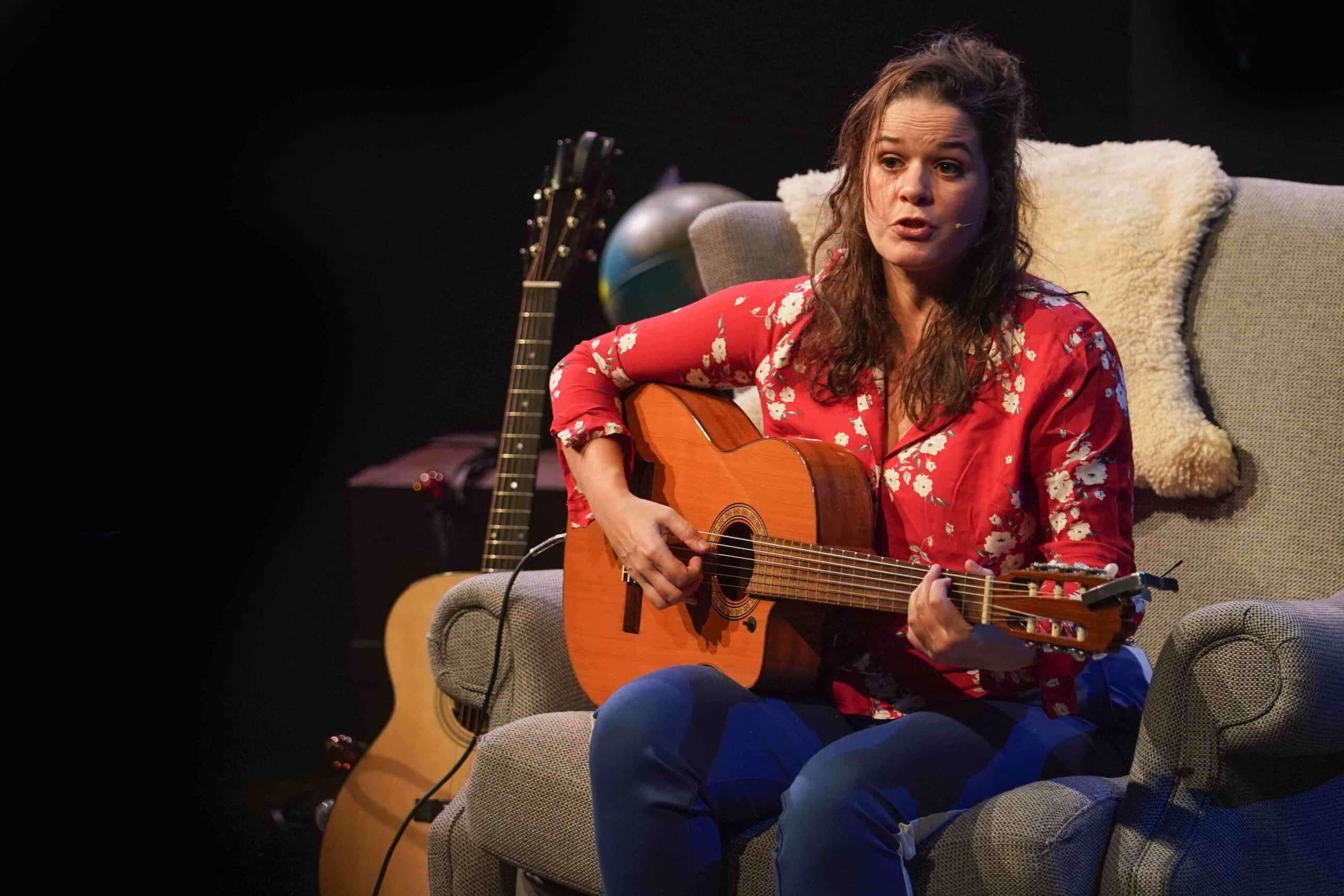 Katinka Polderman in 'Polderman draagt een steentje bij' (Polderman does her bit)
Katinka Polderman in 'Polderman draagt een steentje bij' (Polderman does her bit)© Krijn van Noordwijk
Does that mean there are jokes that you no longer make, do you pay attention to this?
Kruismans: “I have a text that I don’t include in my performance anymore, not because I’m too scared of bringing it up, but simply because people don’t listen anymore. I’m talking about the word we used to use for chocolate-coated marshmallow treats almost everywhere in Flanders, which was a negerinnentet (n-word tit). I would explain that as a child, my mother would give me a slap on the wrist because I had used the word tet (tit). For a long time now, those tits are no longer the problem. I used to have a whole story about it, and until a few years ago I would still sometimes tell the story, but I notice that when I do that now, a lot of people don’t listen anymore to what I want to say. That also makes it interesting of course, because through that interaction you have a different connection with the audience than when you are dancing Pina Bausch.”
Polderman: “If the themes are close to my heart, and I find it necessary to say something about them, then I will automatically do so. I think it’s important that my message gets through. If it’s something I can or want to just make a joke about, why would I do that? It’s not that I avoid themes, I do think about the way I deliver the jokes.”
Katinka, you already talked about World War II, are there any more of those differences?
Polderman: “Well, there are things you have to know when you perform in Belgium. Once I had to play in Antwerp, in front of 11,000 people, so I thought ‘they also understand that this is very special for me’, so when I came on stage, I thought I would make a joke by saying ‘good evening, Bruges!’. I immediately got a ‘boo!’ response from 11,000 people, and I hadn’t even started yet. Someone told me afterwards, ‘well, you could have done that anywhere but in Antwerp.’”
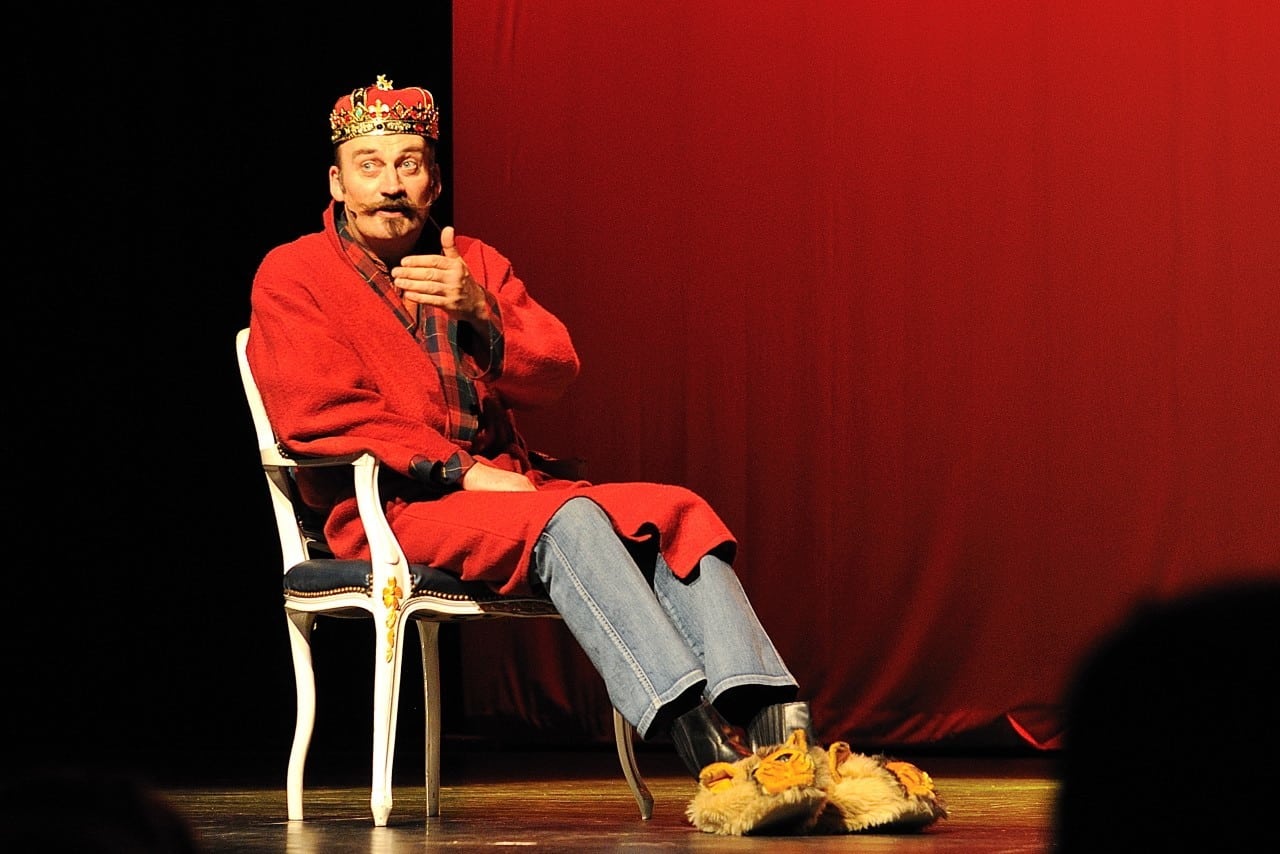 Bert Kruismans in 'België voor beginners' (Belgium for Beginners)
Bert Kruismans in 'België voor beginners' (Belgium for Beginners)© Bert Kruismans
That knowledge about the country, but also about the audience, plays a very important role in comedy. It also has become increasingly important, as it turns out.
Kruisman: “What strikes me is that the disapproval of some things is less uniform. I notice on stage that we are a very fragmented society, where everyone has their own sources of information. People used to watch the same news, but now you can have a topic that is very sensitive or painful to part of the audience, while the other part doesn’t even understand what it’s about.”
Can you give an example?
Kruismans: “Everything that is considered to be woke. Because of social media, as a twenty-something Fleming or Dutchman, you can feel enormously connected to people from the same subgroup in Germany or England, but then sometimes you sit next to people in the audience who don’t understand what it’s about. The sensibilities are very far apart these days. I also noticed that when I perform in the Netherlands. What can I expect that Dutch people know about Belgium? That is very difficult for me to judge. I used to know the Netherlands very well. I’m one of those old Belgians who grew up watching Dutch television in the 1970s and ‘80s, but when I started to perform in the Netherlands, I wasn’t very good at judging what they knew about Belgium and what knowledge I could use to start making jokes.”
Bert Kruismans: 'I notice on stage that we are a very fragmented society, where everyone has their own sources of information.'
I lived in the Netherlands for a long time, but I am surprised how little we actually know about each other.
Kruismans: “It’s the paradox of the unlimited communication possibilities we now have, especially via the Internet. The world has become much smaller, we can follow everything there is to know about pedigree dogs in Tibet through YouTube, but we no longer watch the NOS (the Dutch public broadcasting service), so we no longer know what is happening in the Netherlands.”
Polderman: “Yes, we have grown towards one another in practice, but we know each other less and less well. Although I have to say that I have a similar experience in my own country. I have the idea that in my youth, I really knew all the Dutch celebrities, even if I didn’t follow them. I knew them by name or by face. But now there are so many people doing something in a niche group who are super-famous in that group, but not famous at all within the rest of the country. This means that the divide is not only between Belgium and the Netherlands, but also within a country.”
Kruismans: “Indeed, and if you want to deal with current affairs as a comedian, that becomes very difficult. If you create your own world, as Wim Helsen does, I think this is less of a problem. But I wouldn’t be able to give a year-end conference in the Netherlands, for example, because I will not be able to accurately judge what the Dutch know. Strangely enough, it works in Wallonia, because we have a kind of shared newsroom. We have the federal government, the royal family, the Red Devils; I know what affects people in that area. That makes it easier for me to perform in Wallonia than in the Netherlands.”
Polderman: “Sometimes, you have to make some changes, because you know that the public has less prior knowledge. I have a song about Nick & Simon, and in Belgium I always first explain who they are. K3, but then with two people and for adults (laughs).”


